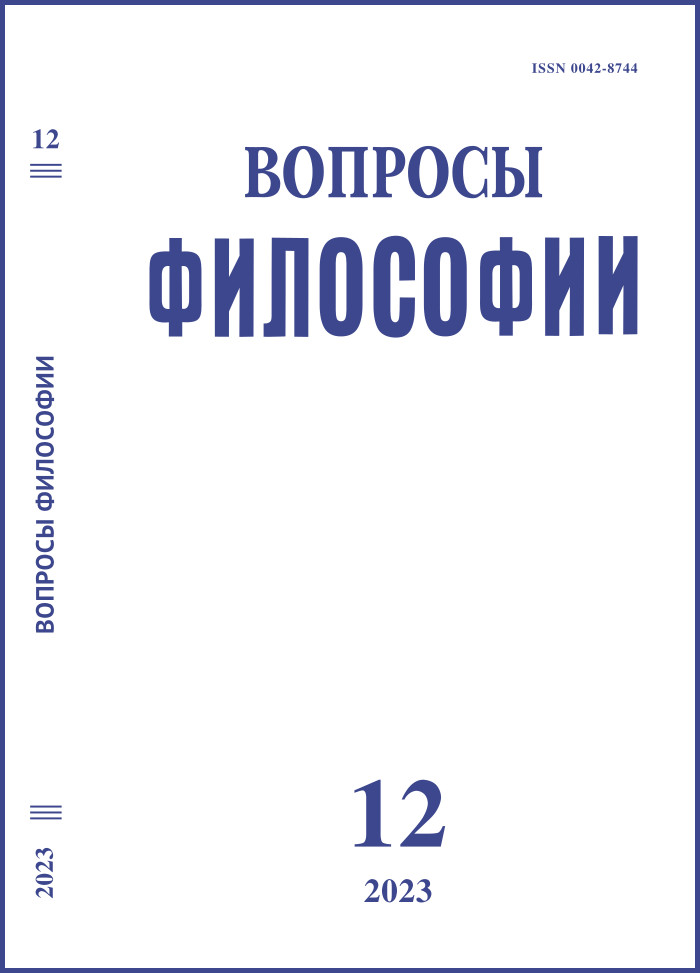The Only One Among Many: M.M. Bakhtin and the Change of Paradigms in Humanitarian Knowledge
DOI:
https://doi.org/10.21146/0042-8744-2023-12-169-179Keywords:
The end of the new times, first philosophy, paradigm shift, dialogical principle, new thinking, other, “sphere-between”, being-event.Abstract
In the history of Russian thought, Mikhail Mikhailovich Bakhtin occupies a somewhat strange, as if not entirely appropriate, place. The scientific and critical literature about him is extensive and continues to grow, but the old question still remains not fully clarified: “Where did Bakhtin come from?” This thinker and scientist clearly does not fit into either pre-revolutionary or Soviet philosophy, or the idealist or materialist tradition, or the religious or atheistic worldview. And he has a very special relationship with Western European philosophy. Bakhtin was critical of precisely those of his predecessors and older contemporaries, under whose determining influence he developed as a philosopher (I. Kant, H. Cohen and neo-Kantianism, E. Husserl). And, on the contrary, thinkers who were rather alien to him (like K. Marx or S. Freud) aroused his keen polemical interest as dialogical opponents. Bakhtin does not seem to have had much appreciation for European existentialism, despite (or rather because) he received existential impulses from Dostoevsky and Kierkegaard in his youth; which did not prevent him from understanding philosophy as a strict science, distancing himself, in particular, from what he called “free Russian thinking,” “our self-thinking thinkers,” etc. The more we learn about M.M. Bakhtin, the more difficult it is to understand where he “came from.” The author of the article tries to get closer to the answer to this question, relying on the concept of “paradigm change”, applied here to the methodology of the humanities.

